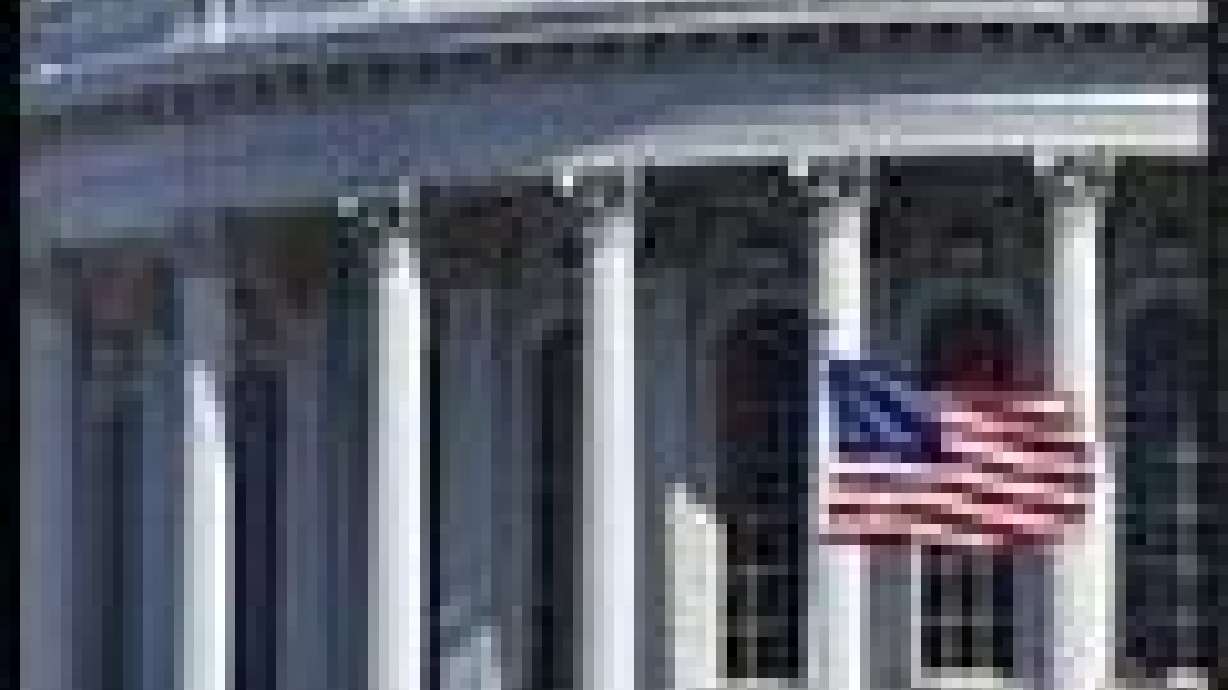Estimated read time: 3-4 minutes
This archived news story is available only for your personal, non-commercial use. Information in the story may be outdated or superseded by additional information. Reading or replaying the story in its archived form does not constitute a republication of the story.
SALT LAKE CITY (AP) -- State Sen. Howard Stephenson is proposing what he calls "a soft repeal" of the U.S. Constitution's 17th Amendment, which took selection of U.S. senators away from legislatures and gave it to the voters.
"The 17th Amendment was a huge mistake," Stephenson said Monday.
The Utah Taxpayers Association president's bill would allow state political parties to write party rules that would let their party's legislators to pick their party's U.S. Senate candidates.
The bill also would call for the Legislature as a whole to "direct" U.S. senators on important issues through legislative resolutions and would require U.S. senators to report back to the Legislature how they were following the direction set out in the resolutions.
Stephenson, R-Draper, said the 17th Amendment says U.S. senators must be elected by popular vote, and since Utahns still would be making the final choice in the November general election, his SB156 would be constitutional.
He said 20 of the 29 state senators already have signed on to his bill.
U.S. Sen. Bob Bennett, R-Utah, said, "I have an idea how the (Utah) Republican voters would react to being disenfranchised -- not allowed to vote in a Republican primary for the U.S. Senate. I suspect they would not be happy."
Legislators who support SB156 could find themselves in political trouble, Bennett said.
Utah GOP Chairman Joe Cannon, who was favored over Bennett to delegates to the party's 1992 state convention, but lost to Bennett in the state primary, does not see a problem with the Legislature "having some kind of say" in the party selection of a U.S. Senate candidate.
But he didn't know whether party delegates, through voluntarily changing party bylaws, would give up their votes for candidates in the state convention or give up the GOP primary in U.S. Senate races.
Cannon has experienced the selection process firsthand. He came out of the 1992 state GOP convention ahead of Bennett, only to lose by 2 percentage points to Bennett in a close Republican U.S. Senate primary that year.
Bennett does not believe the party's rank-and-file members who attend neighborhood mass meetings would vote for a delegate who would then give up that power through changes in party rules.
"And I think any legislators" who voted for such a bill may find themselves criticized by rank-and-file Republicans, he said.
Bennett said that if he were denied a nomination by Republican legislators, he could run a write-in campaign, raise $2 million or $3 million from traditional incumbent national sources and win re-election as a Republican.
"I don't think that would ever happen," said Bennett, because he doesn't believe Utah Republicans as a party would ever give up the power of picking their own U.S. Senate candidates.
Stephenson said the 17th Amendment was one of the biggest governing mistakes the country has ever made.
"It has led to disastrous results -- a runaway federal government, budget-busting spending like a drunken sailor, a terrible erosion of states' rights," Stephenson said.
Bennett said the 17th Amendment passed because Americans were finding two huge problems with legislative-picked U.S. senators:
He said some legislatures -- including Utah's -- were spending so much time wrangling over who should be a U.S. senator that for periods of time state legislative work was ignored and no one was picked as senator -- leaving those states with just one vote in the U.S. Senate.
Secondly, "there was rampant corruption -- senators were being picked because they gave $10,000 'contributions' to legislators," Bennett said.
(Copyright 2006 by The Associated Press. All Rights Reserved.)








